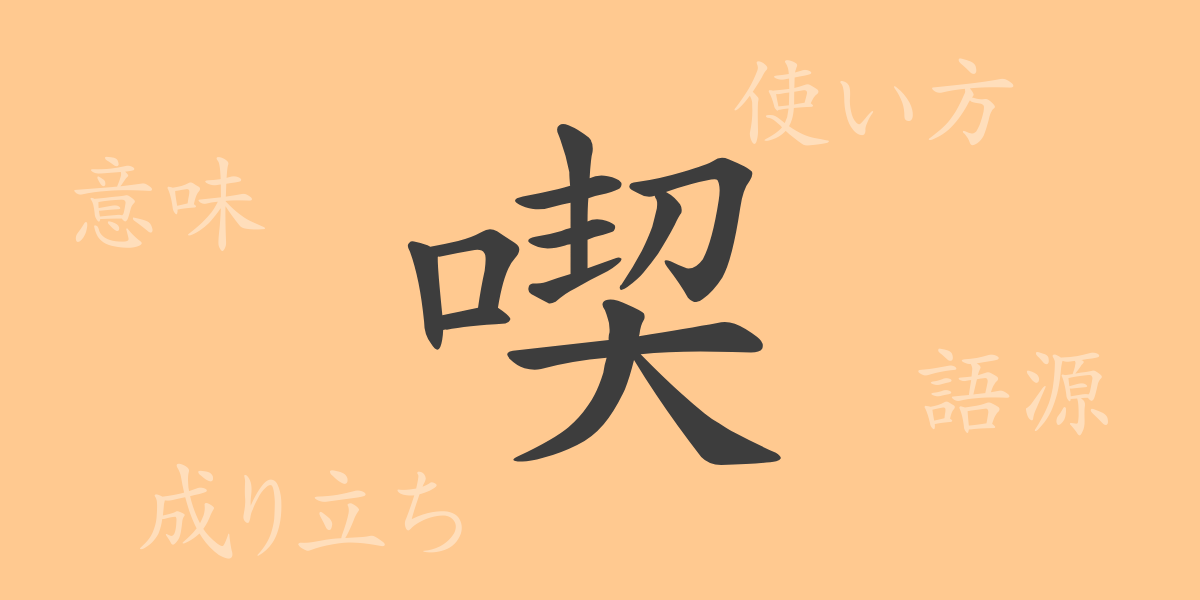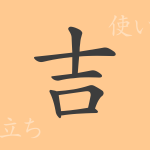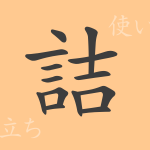The depth of Japanese written culture is profound, and common-use kanji are essential in daily life. This time, we focus on the kanji “喫” (kits), exploring its origins, meanings, and usage. Let’s delve into the world of “喫” (kits) while unraveling the history and culture embedded in this single character.
Origin of the Kanji “喫” (語源)
The kanji “喫” (kits) originates from ancient China. It is composed of the radical “口” (くち, kuchi), meaning mouth, and “契” (けい, kei), indicating sound. Originally, it had a strong connotation of ingesting food or drink. Over time, its usage and meaning expanded to represent more abstract concepts like “accepting” and “experiencing.”
Meaning and Usage of “喫” (kits)
In modern Japanese, “喫” (kits) is primarily used to indicate actions related to eating and drinking. For instance, “喫茶” (きっさ, kissa) means to drink tea or coffee, or it refers to a place where these beverages are served. It is also used metaphorically, as in “損害を喫する” (そんがいをきっする, songai o kissuru), meaning to suffer a loss or damage.
Reading, Stroke Count, and Radical of “喫” (kits)
Understanding the readings and structure of the kanji “喫” (kits) is essential.
- Reading: The on-yomi (Chinese reading) is “キツ” (kits); there is no kun-yomi (Japanese reading).
- Stroke count: 12 strokes.
- Radical: The radical is 口部 (くちへん, kuchihen), meaning mouth.
Idioms, Proverbs, and Expressions Using “喫” (kits)
There are many idioms, proverbs, and expressions that include “喫” (kits). For example:
- 喫煙 (きつえん, kitsuen): Smoking.
- 喫茶店 (きっさてん, kissaten): A café or coffee shop.
- 風雨を喫する (ふううをきっする, fūu o kissuru): To face difficulties or hardships.
- 一喫千金 (いっきつせんきん, ikkitsu senkin): An old expression meaning to waste a large sum of money all at once.
Summary on “喫” (kits)
The kanji “喫” (kits) reflects the richness of the Japanese language through its diverse meanings and usage. From simple acts related to eating and drinking to expressing complex life experiences, this character plays an important role in Japanese language. Through this exploration, we have understood the multifaceted nature of “喫” (kits) and rediscovered the depth of language.

























